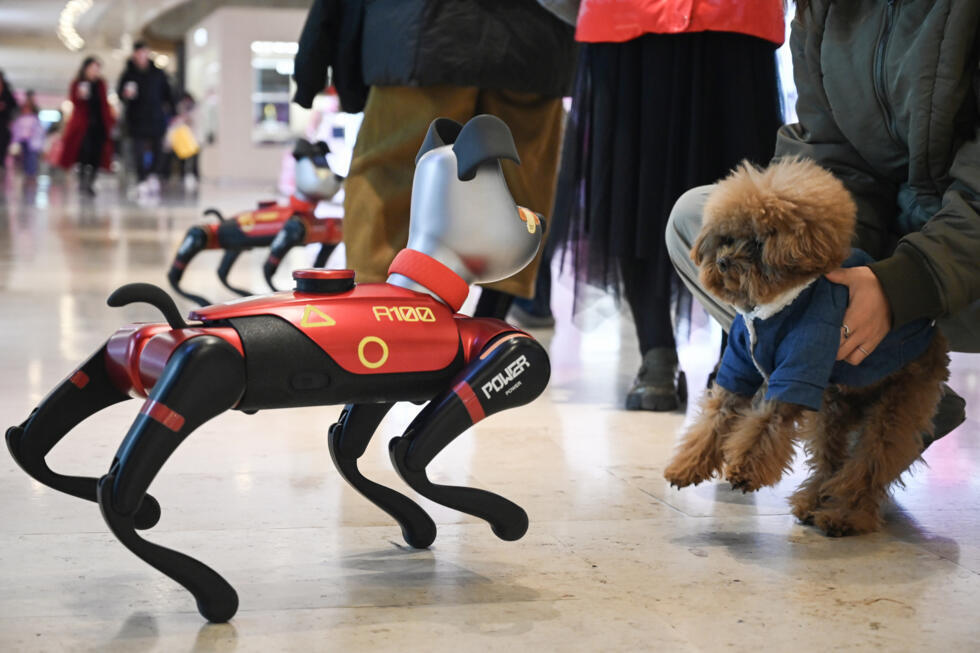AI-Powered Pets: 5 Breakthrough Features for Stress Relief
Discover how AI-powered pets are revolutionizing stress relief and companionship for Gen Z, offering innovative features and emotional support.

Introduction to AI-Powered Pets for Stress Relief
In a recent experiment, a journalist tested an AI-powered pet designed to alleviate stress and provide comfort, particularly to Gen Z. This innovative device is part of a broader trend where technology is being used to enhance emotional well-being and reduce loneliness. The concept of AI companions has been explored in various contexts, including human companionship and pet care, highlighting the potential for AI to play a significant role in mental health support.
The experiment was conducted with a psychologist's prediction in mind, aiming to understand how such a device could impact stress levels and emotional comfort. This article delves into the specifics of AI-powered pets, their design, functionality, and the psychological implications of using them for stress relief.
Background: AI Companions and Loneliness
AI companions, whether in the form of virtual assistants or physical robots, have been studied for their potential to reduce loneliness. Research indicates that interacting with AI companions can lead to consistent reductions in loneliness, particularly when the interaction is empathetic and makes the user feel heard[1]. This principle is crucial in understanding how AI-powered pets might function as stress-relieving companions.
Key Psychological Factors
Feeling heard and understood is a critical factor in alleviating loneliness, which is often linked to stress and emotional distress. AI companions that provide empathetic responses can mimic human-like interactions, potentially offering emotional support similar to that from human relationships[1]. For AI-powered pets, this might involve simulating affection or providing companionship through interactive behaviors.
AI-Powered Pets: Design and Functionality
AI-powered pets are designed to mimic the behaviors of real pets without the maintenance requirements. These devices often include features such as:
- Interactive Behaviors: Some AI-powered pets can engage in interactive games or respond to user inputs, providing a sense of companionship.
- Emotional Support: They are programmed to offer comfort through simulated affection or soothing sounds.
- Personalization: Some models can learn user preferences over time, enhancing their ability to provide tailored support.
For instance, AI-powered robotic pets can be programmed to recognize and respond to voice commands, offering a sense of interaction and companionship. These features are particularly appealing to younger generations like Gen Z, who are increasingly open to using technology for emotional support.
Industry Impact and Adoption
The adoption of AI-powered pets is part of a larger trend where technology is being integrated into various aspects of life to improve emotional well-being. This trend is especially pronounced among younger generations, such as Gen Z, who are more likely to embrace technology for stress relief and companionship.
Pet Care Technology
Beyond AI-powered pets, technology is also transforming the way people care for their actual pets. Tools like smart feeders and pet health monitors are becoming increasingly popular, especially among younger pet owners who value convenience and want to ensure their pets receive the best care possible[2][3]. This shift reflects a broader cultural change where pets are considered integral family members, deserving of the same level of care and attention as human children.
Context and Implications
The use of AI-powered pets for stress relief highlights the evolving role of technology in mental health support. While these devices can provide companionship and emotional comfort, they also raise questions about the long-term implications of relying on technology for emotional support.
Psychological Implications
Psychologists predict that AI companions, including AI-powered pets, will continue to play a significant role in mental health support. However, it is crucial to balance the benefits of these technologies with the potential risks of over-reliance on digital companionship.
Future Directions
As technology advances, we can expect AI-powered pets to become more sophisticated, offering personalized support tailored to individual needs. This could involve integrating AI with other mental health tools to provide comprehensive support systems.
In conclusion, AI-powered pets represent a new frontier in stress relief and emotional support. By understanding their design, functionality, and psychological implications, we can better appreciate the potential of these devices to enhance mental well-being, particularly among younger generations.
Note: Unfortunately, specific images related to the AI-powered pet discussed in the CNBC article were not available in the search results. However, images of AI-powered pets or similar devices can be found through a detailed online search.



